Daniel Sutter: Politics and the economics of the Carbon Tax
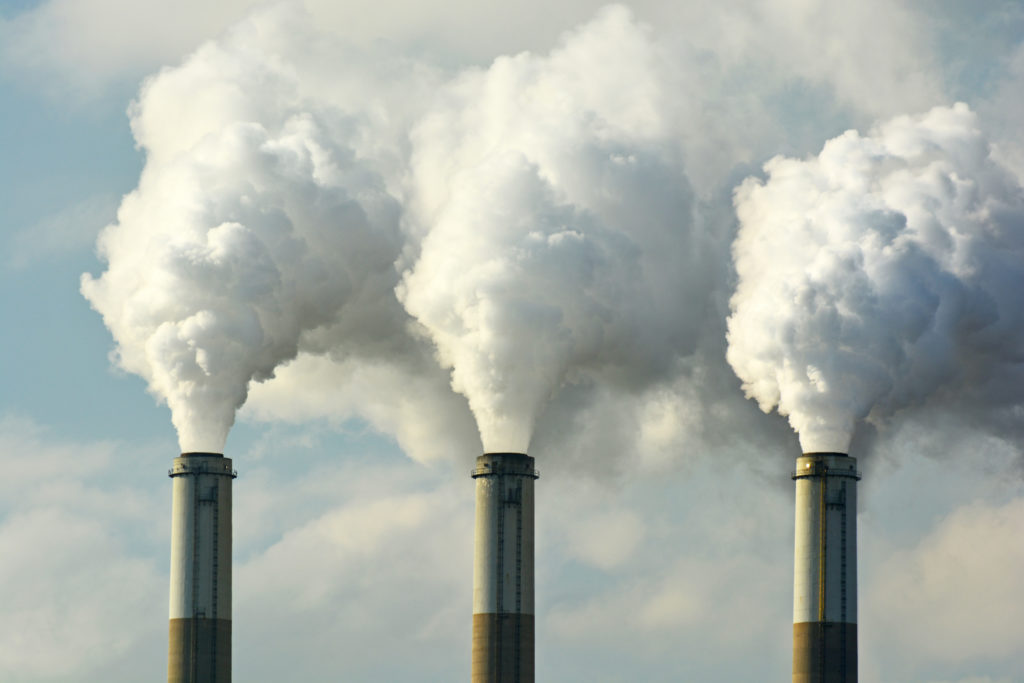
A carbon tax involves some good economics and is probably the best way to address global warming. And yet I think that adopting the tax represents bad policy. My reservations involve the politics of policy implementation as examined by Nobel prize-winning economist James Buchanan. Before getting to my concerns, let’s consider two other arguments against limiting greenhouse gas (GHG) emissions. The first is that reducing U.S. emissions will have little effect on global temperatures. The Clean Power Plan’s emissions cuts, for instance, were projected to prevent 0.02 degrees Celsius warming by 2100. This just reflects the global nature of the challenge. The U.S. will likely generate 10 to 20 percent of global GHG emissions through 2100. We cannot stabilize atmospheric carbon dioxide alone. Whether leading by example or conditioning our actions on other nations’ efforts makes more sense is a matter of international diplomacy, not economics. Another argument is the overestimation of the costs of warming by economists’ Integrated Assessment Models (IAMs). This could happen for two reasons. First, future GHG emissions may produce less warming than currently forecast. Second, the projected warming may occur and not prove extremely costly. Climate models are a crucial component of an IAM; the costs of warming come entirely from predicted climate impacts. The Intergovernmental Panel on Climate Change’s (IPCC) climate models have been running hot: since 1990, only about half of the predicted warming has been observed. This raises questions about the models.Humans will adapt to higher temperatures and rising sea levels. Inadequate modeling of adaptation means that IAMs will overestimate the costs of warming. And climate engineering could potentially remove carbon dioxide from the atmosphere, allowing continued use of fossil fuels while limiting warming. And yet these climate and economic concerns, I think, recommend a smaller tax than currently estimated as opposed to no tax. Unrestrained use of fossil fuels over 200 or 300 years may eventually produce dramatic and costly warming, even if emissions through 2100 merely constitute a nuisance. James Buchanan pioneered the integration of economic and political analysis. He criticized policy recommendations based exclusively on economics. Such advice implicitly assumes government by a benevolent despot who does exactly what economists recommend. Ignoring politics leads to useless and potentially harmful policy recommendations. Economists advocating for initiating carbon taxation based on the benefits from an optimal tax are committing the error Buchanan warned against. The IPCC in 2018 announced a new goal of keeping global temperatures from rising more than 1.5 degrees Celsius. Attainting this goal will essentially require ending the use of fossil fuels by mid-century. IAM pioneer William Nordhaus’ model estimates an optimal tax of almost $50 per ton, or $0.50 per gallon of gas. The optimal tax increases over time but not enough to halt use of fossil fuels anytime soon. Ending fossil fuel use might require a tax of as much as $5,000 per ton. The debate is now whether to end the use of fossil fuels. If the U.S. begins taxing GHG, we will almost certainly within a few years end up with a tax set well above $50 a ton. Why? After we initiate taxation of GHGs, politicians would then need to set and adjust the tax. Politicians will likely balance the views of tax supporters in setting a rate, having resigned themselves to losing the votes of tax opponents. All proponents other than a handful of economists will want a tax much in excess of $50. The IAMs underlying economists’ support for a carbon tax show that costs rise sharply if we limit GHG emissions more than optimally. The IPCC’s new 1.5 degrees of warming goal would, according to Professor Nordhaus’s model, produce net losses for the global economy even relative to no limits on GHGs. An optimal carbon tax may well be sound economically. But if we enact carbon taxation, politics will likely produce a very costly tax rate. Economists should not let the allure of an optimal tax create an impression that carbon taxation will benefit the economy. … Daniel Sutter is the Charles G. Koch Professor of Economics with the Manuel H. Johnson Center for Political Economy at Troy University and host of Econversations on TrojanVision. The opinions expressed in this column are the author’s and do not necessarily reflect the views of Troy University.
Kay Ivey signs ethics exemption into law
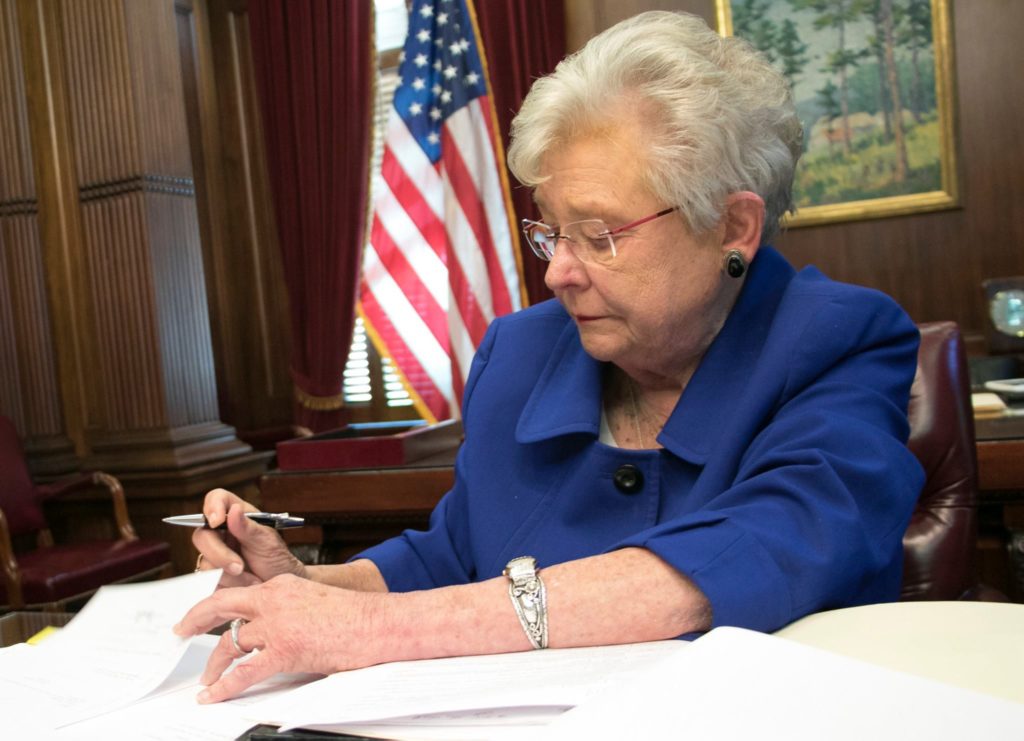
Praising it as a job recruitment tool, Alabama Gov. Kay Ivey has signed legislation to exempt economic developers from the state ethics law. Ivey’s office announced Friday that she signed the bill approved by lawmakers this session after contentious debate. Opponents of the bill argued it opens up a wide loophole in the state ethics law. Economic developers would not be considered lobbyists and would not register with the state or disclose their employers and activity as lobbyists do. Supporters said developers do not currently register, but the law needed to be clarified because of recent questions over whether they should. Ivey in an interview with The Associated Press this week said she believed there was misinformation about the bill she said ensures that developers are welcome in the state. Republished with the permission of the Associated Press.
Daniel Sutter: One reason why economics is challenging
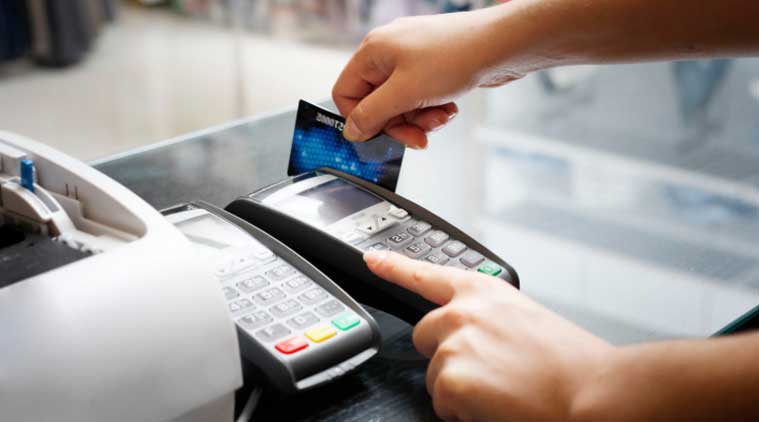
Nineteenth Century poet Christina Rossetti asked, “Who has seen the wind?” Neither you nor I have, but we know that the wind can blow down trees and buildings. Transaction costs in economics are similarly invisible and probably impact our lives even more than the wind. Transaction costs are the costs of making and carrying out deals and trades. They include transportation costs, the time required for shopping, the cost of writing contracts, and the potential for people to take advantage of other parties. The time needed to read and understand the fine print for everything we buy would be a transaction cost. As economist Ronald Coase first understood, transaction costs explain the existence and size of businesses. They help answer questions like: Why do businesses contract for cleaning and lawn mowing? Why do rental car damage waivers cost so much? And, why are law firms organized as partnerships? Lowering transaction costs increases prosperity. Lower transportation costs make global businesses possible, and telecommunications helps manage these enterprises. eBay and Amazon Marketplace allow used items to be sold for much more than garage sale prices. New ways to organize businesses, like the traditional corporation and the benefit corporation, also reduce transaction costs. Economic historian Douglas North attributed much of modern prosperity to transaction cost reductions enabled by the institutions of the market economy. Still, many economists overlook transaction costs in spite of the work of Nobel Prize winners Coase, North, and Oliver Williamson. The core economic models generally ignore transaction costs, which are sometimes viewed as no more than friction. Frictionless pulleys and tables make physics problems much easier. The frictionless world of physics homework, though, still teaches students a lot about the real world. In economics, transactions costs significantly affect how we interpret the world. How so? A couple of years ago, my flight back to Atlanta was delayed because a flight attendants fell prior to boarding, hit her head, and likely suffered a concussion. Fortunately, an off-duty flight attendant was on the next flight arriving from Atlanta; if he agreed, he could work our flight for overtime pay. Tension was high as we awaited his arrival. Professor Coase in “The Problem of Social Cost,” one of the most important economics papers of the 20th Century, explained what we passengers should have done: take up a collection to offer the flight attendant a bonus. One passenger indeed asked a gate agent if we could each give $1 as an extra incentive. The agent responded that an extra $150 would certainly make her more likely to work overtime! We did not take up a collection, and the flight attendant decided to work our flight for the overtime pay. Our failure to offer a payment could have produced inefficiency if the flight attendant was unwilling to work for just overtime but would have for a bonus. We would have valued getting on with our trips enough to make it worth happening, and yet have remained in Oklahoma City. The cost of organizing a group of strangers in an airport to make a payment, however, may be quite high. The other passengers might have dismissed a solicitation by a fellow passenger, or presumed that the organizer would just pocket the money. Our value of traveling may not have been enough to cover the bonus and the cost of organizing, making it efficient that we stay in Oklahoma overnight. My travel dilemma resembles the challenge of public policy: is the market or government more efficient? We could try using voluntary contributions to pay for, say, national defense. The cost of organizing 320 million people to raise nearly a trillion dollars a year for defense seems impossibly high. Having government to tax us and spend on our behalf may be a better option. Yet representative democracy is also imperfect, due in part to – transaction costs. Disagreements about the role of government often turn on whether transaction costs are higher in politics or in markets. Given that we cannot see transaction costs (or the wind), disagreement among economists about government policy seems unavoidable. ••• Daniel Sutter is the Charles G. Koch Professor of Economics with the Manuel H. Johnson Center for Political Economy at Troy University and host of Econversations on TrojanVision. The opinions expressed in this column are the author’s and do not necessarily reflect the views of Troy University.
Daniel Sutter: Independence, imagination and economics
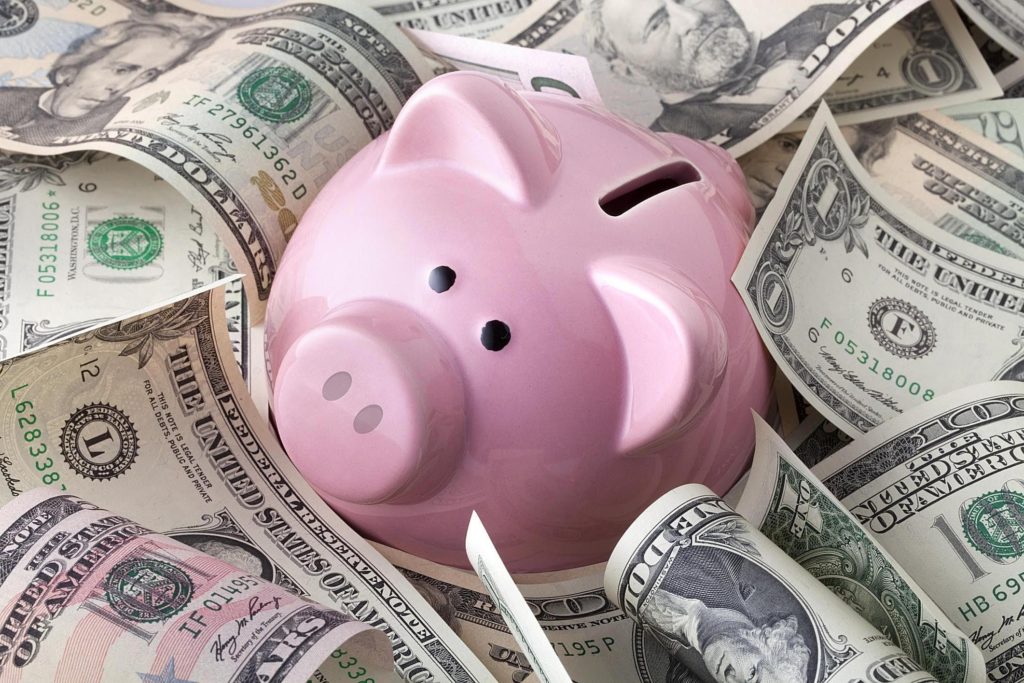
We rightfully celebrate Independence Day. America’s founding generation demonstrated courage in fighting for independence against the greatest superpower of the time, and wisdom in establishing a republic to ensure that our government served the people, not the other way around. The signers of the Declaration of Independence could have faced the gallows if the revolution had failed. They also possessed amazing imagination, an important trait for the economy today. The Revolution also, but less obviously, required imagination. England was arguably the freest and most prosperous nation to that point in history. The American colonies largely shared England’s freedom. Our founders feared, based on their careful study of history and political theory, an emerging tyranny under King George III. They could see in their mind’s eye the threat to and value of securing freedom by founding an independent nation. Life was pretty good in the colonies, so the founders needed a vivid vision of how independence would be valuable enough to make fighting England seem worthwhile. That vision had to sustain them through years of battles, hot summers, and brutal winters, and through times when victory seemed unlikely. Economic progress depends on us being capable of imagining how our actions today will make tomorrow better. Consider the immigrants who came to America, or the pioneers who settled the West. Immigrants from Europe faced a lengthy and expensive voyage, with typically cramped, dirty and smelly accommodations, and real risks of disease and shipwreck (even with the “unsinkable” Titanic). A wagon train to Oregon or California involved hardship and danger as well. Entrepreneurs start new businesses and bring new products and services to the market. These innovations provide most of our country’s economic growth. An entrepreneur must imagine something which does not yet exist, and then envision how to make this happen. Henry Ford imagined average Americans driving cars, and quit his job as an engineer to try to make this happen. His Detroit Automotive Company, however, promptly went bankrupt. Thanks to his vision, Mr. Ford persevered, and the Ford Motor Company changed America. Imagination also factors in our lives. Economists worry about whether people plan adequately for the future; for example, I recently wrote about many Americans’ seemingly inadequate retirement savings. Often economists see such poor decisions as resulting from people placing too little weight on the future relative to the present. But it is also an imagination problem. We can’t imagine vividly enough how much better life would be if we completed that degree, lost weight, or had more savings. Imagination affects how we think about the economy. Economists generally believe that people must be paid higher salaries to do dangerous and unpleasant jobs like coal mining. The resulting compensating wage differentials radically change how one sees the economy working. For example, we surely need government regulation to make coal mines safer, right? But if mining companies must pay workers compensating salaries, improving safety will lower salaries and can increase profit. And lower salaries resulting from safety regulations can make coal miners who don’t mind risk worse off. When economists explain compensating wage differentials in public policy discussions, we frequently get hostile pushback. People raise objections like, West Virginians have no option other than working in the coal mine. Residents who feel lucky to work as miners will not demand extra compensation to brave the dangers of cave-ins, explosions, and breathing coal dust. And yet objectors never assert that the miners are slaves of the coal companies. The policy disagreement consequently boils down to whether we think that Americans can imagine alternatives. The market offers exciting opportunities, limited really only by our imagination. The internet and YouTube allow people to earn a living doing things like offering fantasy football advice and posting videos of themselves playing video games. Perhaps the best way to honor the American Revolution is for us to use our imaginations to exploit the incredible opportunities which freedom affords us today. ••• Daniel Sutter is the Charles G. Koch Professor of Economics with the Manuel H. Johnson Center for Political Economy at Troy University and host of Econversations on TrojanVision. The opinions expressed in this column are the author’s and do not necessarily reflect the views of Troy University.
Daniel Sutter: Selling hope to students

America’s first sports-only university opened last fall, and has already closed. The case illustrates a challenging dilemma for higher education generally. Forest Trail Sports University, as reported by ESPN, allowed student-athletes to focus on training, practicing, and playing. Online classes were provided under subcontract from a separate university. Forest Trail was for-profit and may have been a total scam, although North Carolina authorities reported no criminal actions by the operators. I do not wish to dwell on the sad details here. Instead I want to focus on what Forest Trail was ultimately selling, namely hope. Forest Trail’s promotional pitch proved enticing to both students and parents – the opportunity to continue playing sports and possibly secure a scholarship at an NCAA institution. Junior colleges offer a similar hope. For some Forest Trail student-athletes, an athletic scholarship was their only path to college. Many universities similarly market hope to students. The hope sold to traditional students is economic, not athletic: college graduates earn on average 60 to 70 percent more than high school grads. Many Americans see a college degree as the only route to the middle class. Consider then the high school graduates who lack the test scores and college prep courses for admission to a traditional university, or those who flunk or drop out of college. These students resemble the athletes who just failed to land a scholarship. Should marginal students attend college? Serving marginally qualified students contributes significantly to the cost of higher education (through remedial classes) and lowers outcome measures (like six-year graduation rates). Here are two simple rules, which could significantly reduce higher education spending. First, allow students one attempt on the ACT or SAT exam, and permanently bar any student failing to achieve a reasonable minimum score from attending college. Second, never let any student who fails out enroll again. The U.S. Department of Education could tie universities’ eligibility for Federal student aid to adherence to these two rules. I doubt that these rules would prove popular (and I am not actually advocating them). Some students deemed ineligible could succeed in college, and there are some good reasons to allow students multiple attempts. For example, sixteen year-olds may not take the ACT seriously. College students may not understand how job prospects later will depend on earning a degree. And graduates of poor public schools are often unprepared for college. Americans believe that our nation is a land of opportunity. The chance to overcome disadvantages through hard work is an integral component of opportunity. Yet allowing opportunity creates potential problems. For example, marginal students may be better served by focusing on a job or vocational training instead of using savings or incurring debt to pursue a college degree they likely will never earn. Market competition normally works very well, but seems too quick to sell false hope, as in the Forest Trail case. However colleges as a group set lines for admission, some students will always just fail to qualify. They provide natural customers for a new program selling opportunity. Competing for marginal students can compromise the quality of higher education. Watering down content and inflating grades can help students pass courses they would otherwise fail. Selling essentially fake degrees makes employers incur costs distinguishing fake and legitimate degrees. If bogus degrees cannot be identified, the value of legitimate degrees will fall. The Federal government provides significant funding for college since passage of the Higher Education Act in 1965. Access to Federal student aid is now effectively part of educational opportunity. This only deepens the mess. Unscrupulous colleges like the now-defunct for-profit Corinthian Colleges can sell students bogus degrees paid for largely by Federal taxpayers. Economics can often suggest ways to improve programs, but other times we can merely identify unpleasant tradeoffs. Higher education policy involves tradeoffs between opportunity, cost, and efficiency. The false hope sold by America’s first sports university may be disgraceful, but rules preventing colleges from selling hope may be no more palatable. ••• Daniel Sutter is the Charles G. Koch Professor of Economics with the Manuel H. Johnson Center for Political Economy at Troy University and host of Econversations on TrojanVision. The opinions expressed in this column are the author’s and do not necessarily reflect the views of Troy University.
Daniel Sutter: Cheating in sports and international trade
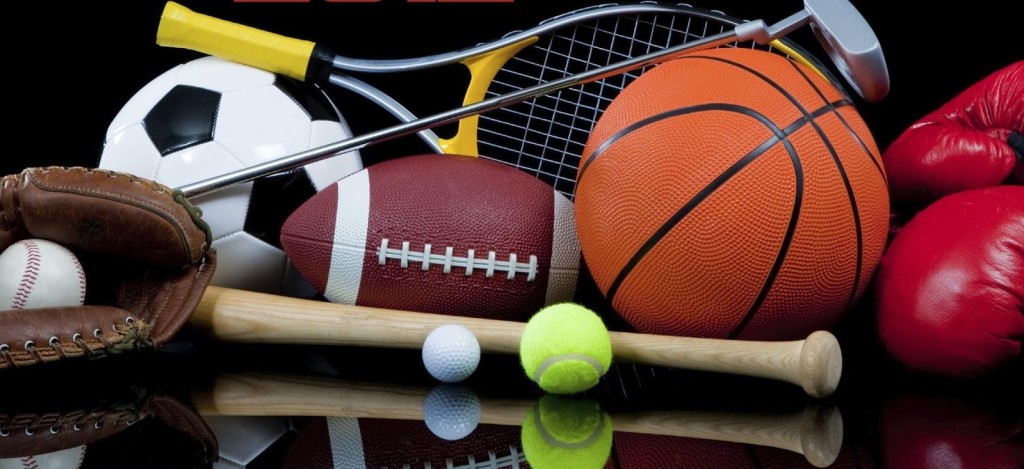
Competition is important in economics and sports. Our knowledge about one of these arenas often helps illuminate the other. An important difference exists between economics and sports, however, which leads to a very different impact of cheating, particularly in international trade. Playing by the rules is crucial in sports. All competitors have an ethical obligation to follow the rules. The desire to win, of course, tempts some to break the rules. Widespread cheating, however, destroys the value of sports competitions. Rigged contests will diminish fan interest, while the satisfaction from winning arises from coming out on top against other competitors’ best efforts. And cheating by others definitely makes us worse off. The rules of fair market competition are nowhere written down. But because market exchanges are voluntary, fair competition should involve consumers choosing freely among all available products. Each firm should have to compete on its own, meaning that they pay their full cost of production. We can then say that the “best” product wins in the market. The difference between sports and economics occurs after competition concludes. Contests are the product in sports. College football entertains millions of fans, but the games (or talking about the games or recruiting) provide the value. Businesses compete to sell bread, vacuums, telephones, and cars. Customers then consume the goods, which generates value. Governments can do many things to violate the rules of market competition and help some firms. Suppose that China’s government provides subsidies to the makers of telephones. American firms let’s say get no government assistance (I’m being optimistic here), and so must charge a price which covers all of their costs. The resulting competition is unfair, as evaluated against the rules of the market. In sports, we would demand exclusion or punishment of a cheater to preserve the integrity of the competition. In economics, the Chinese firm can unfairly win customers away from American firms, because government help allows them to charge a lower price. This is unfair, outrageous … and a good deal for American consumers. When a foreign government covers some of a businesses’ costs of selling to Americans, this is the equivalent of giving us a gift. The foreign government effectively says, “We really need to charge $100 for this vacuum, but we’ll only charge you $70.” It’s like finding the items on our shopping list unexpectedly on sale. The resulting low prices help stretch the incomes of American families. If other governments want to continually subsidize exports, we can make a good case for accepting the gifts. Yes, American firms are hurt, but millions of American consumers are better off. Excluding subsidized foreign goods from our market through import restrictions like tariffs hurts American consumers. The benefits to American consumers must factor this into any decision about enforcing the rules of market exchange. Furthermore, leveling the playing field through tariffs would be hard to accomplish. Foreign government subsidies are often hidden, and sometimes foreign manufacturers out compete American firms while playing by the rules. American companies sometimes get lazy, as with automakers in the 1970s, and then cry foul when they lose in competition. Sometimes we will exclude a genuine cheater, but other times we will protect an American company from fair international competition. I think that economists should pay more attention to concerns about fair market competition. Our economy will be more prosperous if people accept the rules of market competition. None of us, however, wants to be on the losing end of even fair competition: being on the losing end means business closures and job losses. The temptation exists to ask government to help whenever things go poorly. If economists want Americans to accept when market competition goes against them, we should be sensitive to complaints about unfair competition. Cheating by sports rivals hurts our favorite teams. In economics, though, American consumers benefit when our trading partners “cheat” and subsidize exports to the U.S. Fair competition is a value, but so are low priced imports. Dealing with cheating in international trade is a complicated proposition. ••• Daniel Sutter is the Charles G. Koch Professor of Economics with the Manuel H. Johnson Center for Political Economy at Troy University and host of Econversations on TrojanVision. The opinions expressed in this column are the author’s and do not necessarily reflect the views of Troy University.
Daniel Sutter: The economics of Christmas presents

Economists often fail to get holiday party invites for serving up so much humbug during the year. One example of economic reasoning which never wins us friends involves the costs of Christmas presents. The case also provides a lesson about how to do economics the right way. The cost of Christmas presents follows from the economic model of consumer choice. The same argument shows the inefficiency of food stamps, which provide recipients with money which can only be spent on food instead of cash. The argument goes as follows. Suppose that your Aunt buys you a new blender for $30. You are duly appreciative when opening the gift on Christmas morning, but might already own a Ninja blender. So the present could gather dust on a shelf. Or you might return it and get $30, but only after waiting in line, and time is money. Either way the present is worth less to you than $30; you would prefer for your Aunt to give you $30 in cash. The reduction in value here is called a deadweight loss. This term refers to a loss that does not benefit anyone else. Deadweight losses occur elsewhere in the economy, and always indicate inefficiency. Economist Joel Waldfogel found that the deadweight loss of Christmas might be 30 cents of every dollar spent. With Americans projected to spend about $90 billion this Christmas, the lost value could exceed $25 billion. Economists’ reaction to the deadweight loss of Christmas is also revealing. Gift exchange has emerged spontaneously in society – no law makes us give gifts – and yet appears to involve considerable loss. How do we explain Americans wasting billions of dollars every year? Some economists might write this off to stupidity and custom; those who do so also typically argue for government regulations to curb our waste. Interestingly, no economists seem to advocate allowing only cash gifts on Christmas. Other economists believe that a practice which has persisted for generations should be afforded the benefit of the doubt, meaning that we must examine what purposes gift-giving serves. Gift-giving might serve as a type of signaling. Signaling is when we take a visible act which provides evidence of something else, namely that you care about someone. A present signals that you care precisely because it is costly. Relatedly, you might want to show someone special that you know what they really want. A deadweight loss also applies to Valentine’s Day presents. But I warn students when we cover this in class in February about the risk of applying this lesson. Giving cash on Valentine’s Day may be good economics, but it will leave their sweetheart unimpressed. People also give presents for the joy that they bring others. One of my favorite scenes in the movie “A Christmas Story” is Ralph’s Dad’s reaction to his son’s joy upon receiving a Red Ryder air rifle. This present created a joyous moment that Ralph will always remember and value far in excess of its price. Economists must recognize that people do not give gifts simply to transfer wealth. This highlights the second lesson from Christmas presents, namely that good economics involves viewing activities as the participants do, which is called subjectivism. Professor Waldfogel’s argument isn’t wrong, just not relevant; if Christmas were about transferring wealth, cash would be the way to go. Of course, pointing out the costs of presents could help make gift-giving more efficient. Subjectivism has far-reaching applications. For instance, I mentioned the inefficiency of food stamps relative to giving cash. And yet the program has persisted for decades. Some public choice economists might credit the farm lobby for this. I believe that Americans want to ensure that their fellow citizens do not want for food, and not just have more money to spend. The holiday shopping rush and the long return and exchange lines after Christmas certainly entail costs. But before economists rain on the Christmas parade, we must understand exactly why people give gifts. And learning about good subjectivist economics is a gift that gives back throughout the year! ••• Daniel Sutter is the Charles G. Koch Professor of Economics with the Manuel H. Johnson Center for Political Economy at Troy University and host of Econversations on TrojanVision. The opinions expressed in this column are the author’s and do not necessarily reflect the views of Troy University.
Daniel Sutter: Some unpleasant voting math

Election Day is our opportunity to possibly tell our elected representatives, “You’re Fired!” Election season brings lots of get-out-the-vote messages, but I will consider some economics of voting. Let me warn you in advance: people often find this economics lesson upsetting, probably because it challenges the conventional wisdom about democracy. The economic perspective considers an individual voter’s benefits and costs. Consider someone who believes the outcome of the presidential election will significantly effect the economy. Imagine that their favored candidate will cut federal taxes, resulting in extra money to spend. Further, cutting taxes and regulation will boost economic growth, increasing pre-tax income. If we add the value of important presidential decisions like nominations to the Supreme Court and foreign diplomacy, let’s say that the outcome of the election matters by $25,000 over the next four years. The cost includes the time to drive to the polling place, waiting in line, reading the ballot, and casting a vote, plus gas to drive to the polls. Voting will likely take at least 30 minutes, more if the line is long. Between the time and the gas, let’s say that the cost is $10. Voting appears to be a good deal, since the value of the outcome ($25,000) far exceeds the cost ($10). Except that the favored candidate may not win even if the person votes, and could win if she doesn’t vote. The election outcome is not tied to the cost. How do we evaluate voting now? Economists would weigh the benefit by the probability that a person’s vote changes the election outcome. Here arises the problem. The probability of casting a decisive vote in a U.S. presidential election is really small. How small? The probability is likely smaller than the chance of getting in an accident driving to the polls. The frequency of tie elections provides evidence on the likelihood of a casting a decisive vote, and very few elections end in ties. When you multiply $25,000 by this really small number, the result might well be less than a penny. The economic perspective clearly recommends staying home on Election Day. Yet over 100 million Americans will vote, so people must not be deciding to vote exclusively in terms of personal costs and benefits. Many Americans feel a duty to vote, and so the guilt of not voting may outweigh the cost. People might also vote to express their values. Do these other motives render the economics irrelevant? I don’t think so, because the above reasoning also applies to voters’ incentive to become informed about issues and candidates. Better information reduces the chance of voting for a candidate who does not support your positions, but the low probability of casting a decisive vote means that a mistake likely doesn’t matter. Voters’ incentive here has been termed rational ignorance, to emphasize how not becoming informed makes some sense. A sense of duty or the value of self-expression might get Americans out to vote. But many of these votes will be ill-informed, and the problem of poorly informed voters is not going away easily. The economics of voting is part of Public Choice economics, which has been called “politics without romance.” Public Choice challenges the view of democracy offered in high school civics class, but ultimately just tries to describe the world as it actually operates. Whether we like this or want to change our democracy as a result are separate questions. For instance, we might conclude that rational ignorance explains why campaign ads succeed in manipulating poorly informed voters, thus providing a rationale for campaign finance reform. Or perhaps the Americans who follow politics closely and cast votes in line with their values make elections work well despite some ill-informed voters. The economics of voting, I think, definitely dispels the idea that simply voting somehow automatically and magically produces good outcomes. Elections have been a tremendous innovation in human history, but voting has limits. We must study the electoral process carefully to ensure that we do not ask elections to do more for us than they can realistically deliver. ••• Daniel Sutter is the Charles G. Koch Professor of Economics with the Manuel H. Johnson Center for Political Economy at Troy University and host of Econversations on TrojanVision. The opinions expressed in this column are the author’s alone and do not necessarily reflect the views of Troy University.
Daniel Sutter: Football practice facilities and the cost of health care
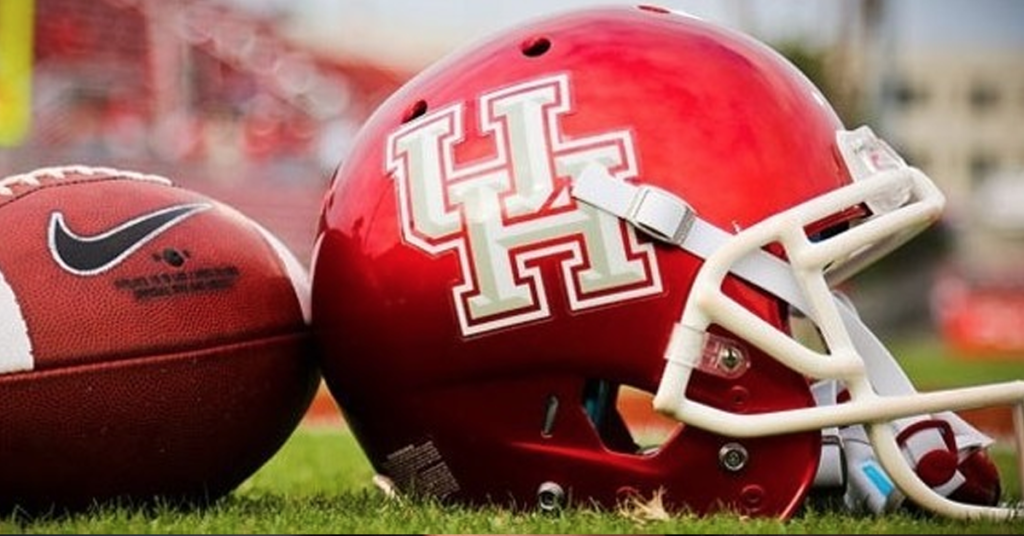
The University of Houston will break ground soon on an indoor football practice facility, which hardly seems like a story of economic interest. It turns out practice facilities illustrate a common confusion, even among economists, about costs. As Nobel Prize-winning economist James Buchanan explained in Cost and Choice, goods and services have no cost independent from many choices we make. Houston is vying for a spot in the Big 12 Conference, which reportedly will expand soon. As a lifelong college football fan who has worked in higher education my whole career, I find conference realignment fascinating. Houston is spending over a quarter of a billion dollars upgrading its athletics facilities to Power 5 conference standards merely to strengthen its Big 12 prospects. A season-opening win over Oklahoma certainly helps make the Cougars look ready for the Big 12 on the field. Houston’s upgrades include a $20 million indoor practice facility, which caught my attention. When did indoor practice facilities become a necessity? Such facilities are certainly common now in Power 5 conferences; with Florida recently announcing plans, all of the SEC schools will have indoor facilities. But college football was played for decades without indoor practice fields. Indoor practice facilities contribute to the escalating cost of major college football. Should this be so? Here’s where choice comes in. The facilities are clearly useful, allowing regular practices during inclement weather. But teams have other options, like practicing outdoors if it isn’t raining too hard, or watching film. Currently the Cougars will take buses to the Houston Texans’ indoor facility, which hardly seems like the end of the world. Once a school decides to build a facility, more choices must be made. Is a full 100-yard field needed, or only a 50-yard field? Should the roof be high enough to allow punting? Should the facility be climate controlled? Choices about dozens of other factors further shape football costs, like the number and salaries of the coaching staff and graduate assistants, the quality of the weight and locker rooms, and so on. No laws of nature tell us exactly what must be used to field a football team. Expenditures can be calculated for the choices actually made, but would differ if other choices were made. Sun Belt conference schools like Troy make different choices than SEC schools, and field teams for much less. The same principle applies to other goods and services. Take the case of health care, whose “cost” has been rising faster than inflation. Again, incurred costs reflect choices. How frequently should people have checkups? What blood tests should be performed annually? When should colonoscopies, prostate exams, and mammograms be performed? Should mental health care and chiropractors be covered? Costs have been rising, based on the choices we have made. These choices also reflect values. Houston Coach Tom Herman has used the line “charge it to winning” to justify extra expenses to the university’s athletics director. Administrators’ acceptance of this line reflects value judgments, first that the spending contributes to winning, and second that winning is worth the cost. Similarly, decisions about spending millions of dollars to save, extend, or improve the quality of lives also reflect values. Too many economists never learned Professor Buchanan’s lesson, and instead believe that THE cost of a hospital stay or operation exists. Consequently they believe if we diligently audit and monitor doctors and hospitals, costs can be controlled. This makes it appear plausible that the government can run Medicare and Medicaid without making choices about health care for us. Why does the economics of indoor football practice matter? When we change who pays the cost of medical care (or education, or anything else), we also typically change who gets to make decisions, since whoever pays the bills typically calls the shots. Changing who makes decisions changes the values applied. The idea of having others pay for us is inherently attractive. Paying for ourselves, however, is the only way to ensure that the choices reflect our values. ••• Daniel Sutter is the Charles G. Koch Professor of Economics with the Manuel H. Johnson Center for Political Economy at Troy University and host of Econversations on TrojanVision. The opinions expressed in this column are the author’s alone and do not necessarily reflect the views of Troy University.
Birmingham residents rank among nation’s savviest investors
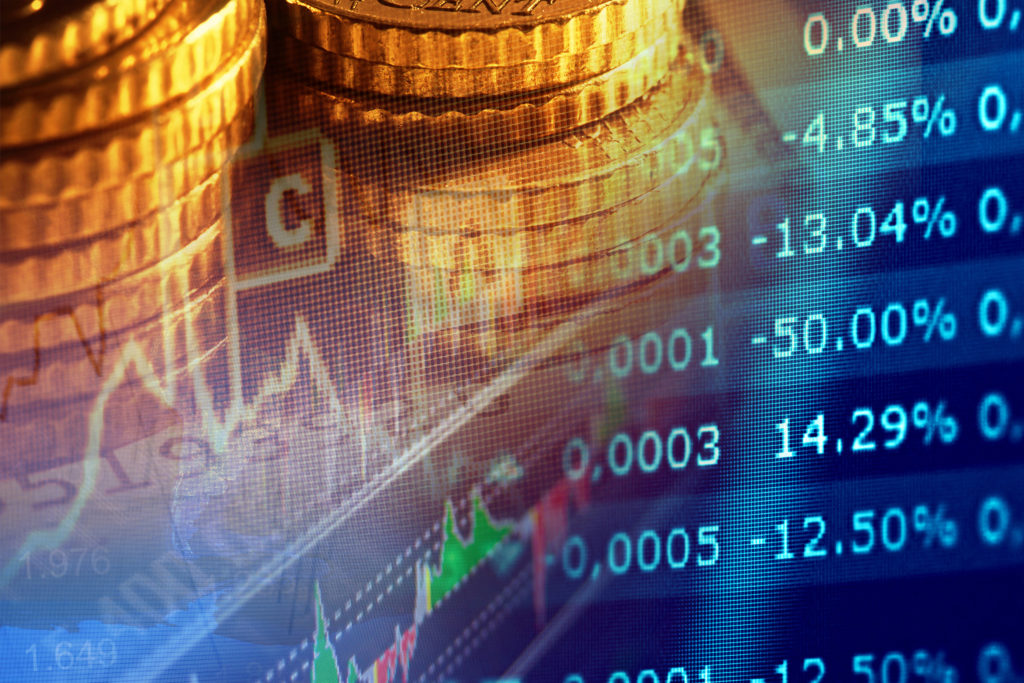
When it comes to making investments, Birmingham residents are among the nation’s most savvy. That’s according to New York City financial technology company, SmartAsset and its review of investment for various cities across the country. Its list of “Places with the Savviest Investors” ranks the Birmingham region No. 1 in state and No. 17 nationally out of 129 cities included in the study. Here is a look at how Birmingham performed in each category of the study: Annual Return: -5.7% Volatility: 24.8% Post Tax Return: -5.7% Savviest Investors Index: 84.52 SmartAsset analysts endeavored to find where people are not only seeing good returns on their investments but where they are doing so without taking too much risk. The report examined annual investment returns, as well as portfolio volatility and post-tax returns. In order to find the places with the savviest investors SmartAsset calculated investment returns and portfolio volatility over the last year, focusing on data of user portfolios provided by our partner Openfolio. They then calculated the risk-adjusted return of the stocks using the Sharpe Ratio, which is the stock return minus the risk-free rate divided by volatility. After that they indexed and ranked each of the locations based on this risk-adjusted return to find the places where people were seeing the best returns for the least risk. And finally the company calculated the amount of money investors were taking home after paying both federal and state capital gains taxes. The report found the savviest investors in Reston, Va., followed by Renton, Wash., and White Plains, N.Y.
Hillary Clinton warns Donald Trump would plunge economy into recession
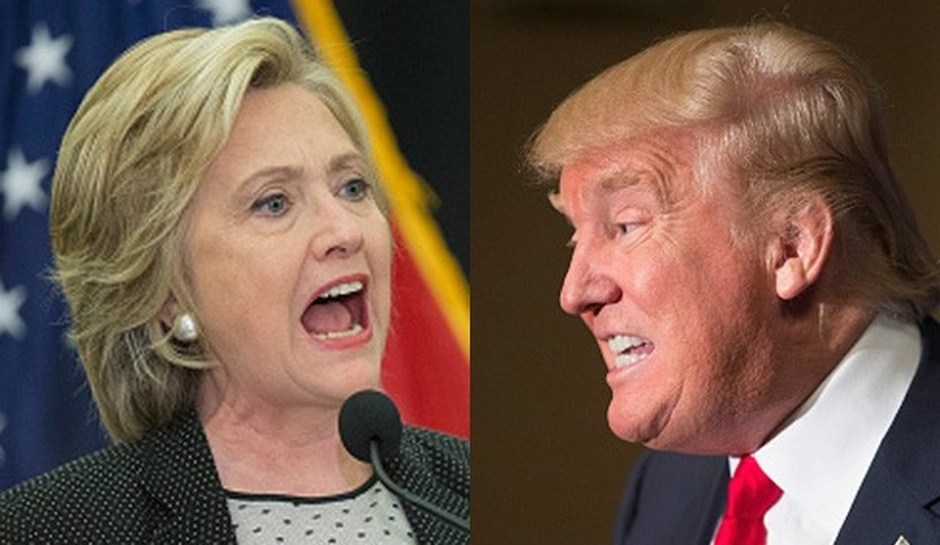
Hillary Clinton said Tuesday that Donald Trump would send the U.S. economy back into recession, warning his “reckless” approach would hurt workers still trying to recover from the 2008 economic turbulence. Clinton’s address in Ohio, one of the most important battleground states, sought to define Trump as little more than a con man, whose ignorance and ego would tank the global economy, bankrupt Americans and risk the country’s future. “Every day we see how reckless and careless Trump is. He’s proud of it,” the Democratic presidential candidate said. “Well, that’s his choice. Except when he’s asking to be our president. Then it’s our choice.” The speech was similar to one earlier this month in San Diego in which Clinton tried to undercut the Republican candidate’s foreign policy credentials. This time, at an alternative high school in Columbus, she questioned whether Trump has the temperament to guide the economy and repeatedly pointed to his business record as evidence of how he would treat small businesses and working families. “Just like he shouldn’t have his finger on the button, he shouldn’t have his hands on our economy,” Clinton said. Her speech included stinging one-liners, including a takedown of Trump’s best-selling books. “He’s written a lot of books about business. But they all seem to end at Chapter 11,” she said, in an allusion to the U.S. bankruptcy code. Trump responded on Twitter as Clinton delivered her address, writing in one tweet: “How can Hillary run the economy when she can’t even send emails without putting entire nation at risk?” He appeared to be referring to Clinton blending her personal and official emails on a homebrew server in her house, while she was secretary of state. The businessman later appeared to embrace one of Clinton’s attack lines, writing: ‘I am “the king of debt.’ That has been great for me as a businessman, but is bad for the country. I made a fortune off of debt, will fix U.S.” Republican National Committee chairman Reince Priebus said Clinton was “the last person qualified” to talk about improving the economy, pointing to “eight years of disastrous Obama policies.” Clinton used Trump’s own statements to undercut his economic credentials, citing remarks he made that that U.S. could sell off assets, default on its debt and that wages are too high. She also repeated a comment he made that pregnant employees are an “inconvenience.” Clinton said financial markets often “rise and fall” on comments by presidential candidates. Suggesting the United States could default on its debt could cause a “global panic,” she added. She also seized on a report Monday by Moody’s Analytics which found Trump’s plans would lead to a “lengthy recession,” costing nearly 3.5 million American jobs. The analysis by Moody’s Mark Zandi, a Clinton donor and former economic adviser to Republican Sen. John McCain‘s 2008 campaign, predicted Trump’s approach would swell the federal debt as the U.S. economy becomes more isolated by less trade and cross-border immigration. Trump has pointed to trade as a major difference with Clinton, saying last week that her support of past trade deals, such as the North American Free Trade Agreement, has cost the country “millions of jobs.” He also has assailed her promotion of the Trans-Pacific Partnership trade deal as Obama’s secretary of state as a sell-out of U.S. workers. Clinton announced her opposition to the TPP last October, saying it failed to meet her test of providing good jobs, raising wages and protecting national security. Brushing it aside, Clinton said there was a difference between “getting tough on trade” and “recklessly starting trade wars.” She noted that many of Trump’s products are made in countries like China, Mexico, Turkey, India and Slovenia. Bolstered by more than $40 million in television advertising, Clinton and her Democratic allies are trying to use this period before next month’s Democratic National Convention to disqualify Trump among moderate voters on the economy and prevent him from successfully wooing working-class voters in battleground states like Ohio, Wisconsin and Michigan. Fundraising reports filed Monday showed Clinton with a big advantage, starting the month with $42 million in the bank compared with Trump’s $1.3 million. Clinton was expected to talk about “ambitious new goals” for the economy Wednesday in Raleigh, North Carolina. Republished with permission of The Associated Press.
Daniel Sutter: An economics lesson from daily fantasy sports
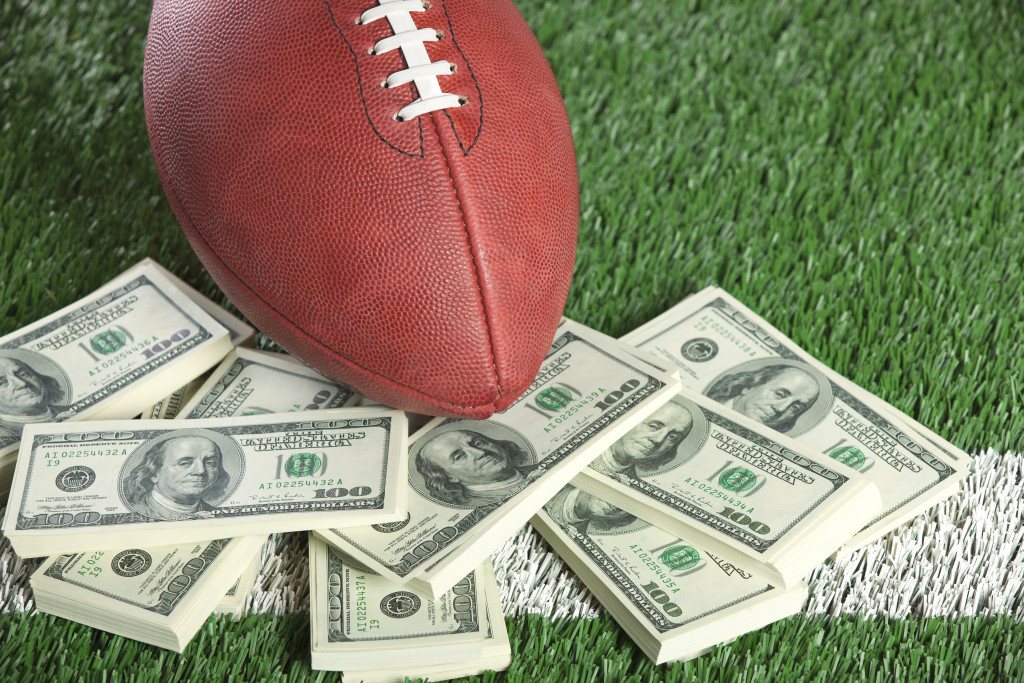
New York Attorney General Eric Schneiderman announced last week that daily fantasy sports (DFS) sites Fan Duel and Draft Kings will stop paid contests in the state, because DFS amounts to illegal sports betting. Accusations last fall of “insider trading” against the sites, which seem to have precipitated legal action, offer a lesson on the discovery function of economies. First some background. Fantasy sports players choose pro players for their team, with game stats counting for the fantasy team. People generally play in season-long leagues with friends; fantasy football originated in the 1960s and Rotisserie league baseball in the 1980s. DFS involves one day (or week in the NFL) games, which particularly appeals to fans not interested in managing a fantasy team for an entire season. Large DFS tournaments draw thousands of entries and offer prizes over $1 million. Whether DFS constitutes gambling depends on the details of state law and is not my concern here. Massachusetts’ Attorney General just last week decided DFS sites could continue to operate, subject to regulation. States laws clearly differ on this question. The insider trading allegations involved employees playing on other DFS websites, which could provide an unfair advantage. A contrarian lineup offers the best hope of winning a large prize in a contest with thousands of entrants. A team with the best, most popular players might be more likely to win, but lots of players will split the prize. Really big wins require teams of less frequently selected players who have great games. Employees could use selection patterns in tournaments on their site to craft contrarian teams to field on other sites. Such information offers an advantage, but not the guaranteed profit of true insider trading. Discovery in economies was first highlighted by economist Friedrich Hayek and refers to the knowledge we gain through the operation of the economy. Most of our economic knowledge emerged from economic action. We know now that the corporation is an efficient business organization and that oil has hundreds of economic uses. But we did not know these things before economic activity. Oil deposits became a valuable resource only when people learned how to drill for and refine oil. Competition in sports offers a parallel. We discover the best college football teams each year through the season’s contests. Unexpected Heisman Trophy candidates and national championship contending teams can emerge. These surprises personify discovery, and demonstrate that we must play the games to learn the best teams and players. Economic discovery means that we constantly learn new things and must always be ready to adjust our plans accordingly. Any business which gets too wedded to the old ways of doing things runs the risk of obsolescence. We cannot know what we will learn during the operation of the economy. Consider now the evaluation of the DFS insider trading charges. Draft Kings and Fan Duel already did not let their employees play on their own sites – they recognized the potential conflict of interest. But neither recognized the potential use of selection patterns by employees on other sites for unfair advantage. Both Fan Duel and Draft Kings banned their employees from playing for money on other DFS sites after the recognizing the problem, and for good reason. Customers will play less if they thought that DFS contests were unfair. In a world with discovery, this is part of the learning process. Someone who does not recognize the role of discovery is more likely to see nefarious activity. If DFS knew everything when they began operations, the choice to let their employees play on other sites looks calculated. Hindsight is usually 20/20, and if we ignore discovery, we might also believe that foresight is 20/20. Unfortunately too many policymakers and even economists ignore the role of discovery. This may not be an accident. For policymakers seeking to run the economy, discovery is a subversive concept. Would-be government planners want us to believe that they know how to solve all of our problems. Economic discovery explains why would-be planners cannot know everything needed to run society. • • • Daniel Sutter is the Charles G. Koch Professor of Economics with the Manuel H. Johnson Center for Political Economy at Troy University and host of Econversations on TrojanVision.

